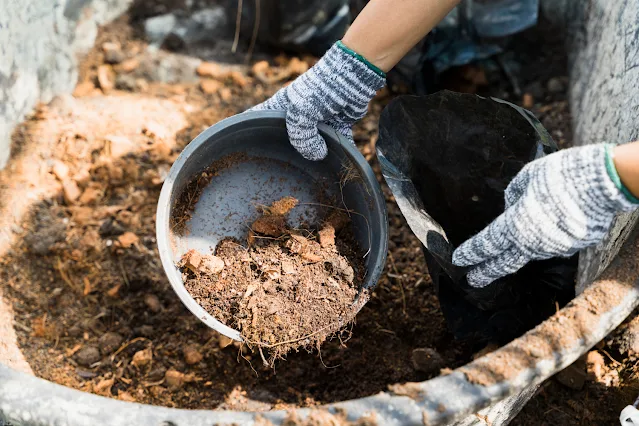In our quest for a greener planet, composting stands as a cornerstone practice. Not only does it significantly reduce organic waste, but it also enriches the soil and nurtures plants, completing a beautiful cycle of sustainability. For eco-conscious individuals eager to embark on this journey, here's a comprehensive guide to the various composting methods available.
Traditional Backyard Composting
Overview
Traditional backyard composting involves creating a compost pile or bin in your yard. It's a straightforward and cost-effective method that utilizes natural processes to break down organic matter.
How It Works
Choose a Location: Select a suitable spot in your yard that receives partial sunlight and is easily accessible.
Layering: Alternate layers of brown materials (such as leaves, straw, or shredded paper) with green materials (like fruit and vegetable scraps, grass clippings, and coffee grounds).
Turning: Regularly turn the pile to aerate it and speed up decomposition.
Patience: Depending on environmental factors and the materials used, compost can be ready in a few months to a year.
Benefits
Requires minimal investment
Produces nutrient-rich compost for gardens
Reduces landfill waste and methane emissions
Vermicomposting
Overview
Vermicomposting employs the help of special worms, typically red wigglers, to break down organic matter into nutrient-rich castings.
How It Works
Bin Setup: Prepare a bin with adequate ventilation, bedding material (shredded newspaper or cardboard), and a population of composting worms.
Feeding: Add kitchen scraps, avoiding citrus, onions, and spicy foods, which worms dislike.
Moisture Control: Maintain proper moisture levels by misting the bedding as needed.
Harvesting: Once the bin is filled with castings, separate the worms from the compost and harvest the finished product.
Benefits
Perfect for individuals living in urban areas or those who have limited access to outdoor areas.
Produces high-quality compost and a liquid fertilizer known as "worm tea"
Speeds up the composting process
Bokashi Composting
Overview
Bokashi composting originates from Japan and relies on a specialized fermentation process to break down organic waste.
How It Works
Bokashi Bucket: Place food scraps in a Bokashi bucket layered with a bran-based inoculant containing beneficial microbes.
Fermentation: Seal the bucket tightly to create an anaerobic environment, allowing the microbes to ferment the waste.
Maturation: Once full, bury the fermented waste in soil or add it to a traditional compost pile to complete the composting process.
Benefits
Accepts a wider range of materials, including meat, dairy, and cooked foods
Compact and odour-free, making it suitable for indoor use
Speeds up decomposition and enriches the soil with beneficial microorganisms
Conclusion
Composting is a rewarding journey towards environmental stewardship, offering a myriad of benefits for both individuals and the planet. Whether you opt for traditional backyard composting, vermicomposting with worms, or the innovative Bokashi method, each approach contributes to a greener, more sustainable future. So, roll up your sleeves, embrace the process, and let's compost our way to a healthier planet!



Post a Comment
0Comments